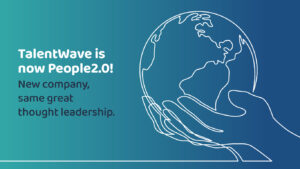The world of work is rapidly evolving. With dramatic demographic shifts taking place we are witnessing increasing levels of talent scarcity and a significant growth of the independent workforce. In addition, we have unprecedented levels of political and economic turbulence, contributing to a high level of business uncertainty. In this complex new human capital equation, where many workers are working on a flexible, non-employee basis some have asked the question if there is still a need for Human Resources (HR)?
From our unique vantage point at the center of this complex ecosystem, helping companies and their contractors safely and efficiently work together, we believe HR professionals have a vital role to play in today’s dynamic talent environment. They must navigate these treacherous waters to ensure their organizations have the human capital they need in order to execute their strategic plans. However, they need to do so with a much broader view of the workforce than at any time in the past.
The Independent Workforce
The “gig” economy…
Labor on demand…
The “death” of jobs…
…Whatever phrase we might use to describe this new workforce, one thing is certain: it is large, growing, and definitely not going away. Many experts have predicted that the independent workforce (consisting of freelancers, independent contractors, temporary workers, consultants, gig workers, etc.) could reach 40%, or more, of the total U.S. workforce by 2020.
New World of Work
The growth of the independent workforce and the gig economy companies that help to match work with workers, has led to a fundamental shift in how we view work and those who perform it. Instead of just categorizing work in terms of roles (for example, a Financial Analyst), work has become more “projectized” – broken up into discrete deliverables that can be performed on a task or project basis by the best available talent at that moment.
The notion of employment is quickly being replaced by engagement. Moreover, the very nature of the relationship between “employer” and “employee” has been completely transformed – the historical degree of trust and reciprocity (i.e. employment for life, with a gold watch and pension at retirement) has been blown up – likely to never return.
While there is still a lot of uncertainty around some of the “new economy” employment models (witness Uber) engaging independent task-based workers, it is likely they will arrive at a compromise with government labor agencies that will allow them to continue. Most traditional companies (i.e. the vast majority of the U.S. economy!) increasingly rely on professional categories of non-employees to perform work. These organizations are finding that they can both gain access to scarce talent and gain business flexibility by engaging skilled knowledge workers who want to work as independents.
HR’s Crucial Role in the New World of Work
There is no question that the independent workforce will continue to grow in size and importance. If this segment of the total workforce approaches half of the total, then HR professionals must take a leadership role in driving holistic human capital strategy and engagement for their organizations. They will play a vital role in helping their organizations to become a client-of-choice for this new workforce.
Even if we see fewer traditional employment relationships (i.e. employer/employee) in the future, there will be no less human interaction. In fact, this new world of work is more complicated than ever. There are now many different sources of talent (both direct and through agencies), different intermediaries, more complicated employment laws, and greater government scrutiny of worker classification. All of these human capital elements need to be carefully managed at the enterprise level. This is core to the HR role.
As work becomes more on-demand in nature, companies will need to become skilled at balancing talent supply and demand for their organization. Both to make sure work gets done today, but also to make sure it can be done in the future. Human Resources professionals will be required to design and implement the programs that enable this flexible balance of labor to occur.
Conclusion
So, to answer the question posed in the title of this post: “Is there still a need for Human Resources in the new world of work?”
We believe the answer is a resounding “Yes!”
In this new world of work, where non-employee workers will approach half of the total workforce, Human Resources professionals will play a crucial role in defining and implementing programs that enable their companies to both attract and retain the talent they need. Independent workforce engagement experts, like TalentWave, can help HR leaders by providing a suite of solutions that enable clients to direct-source independent talent, and then engage contractors safely and efficiently.
“
Human Resources definition.” by
Nick Youngson is licensed under
CC BY-SA 3.0



